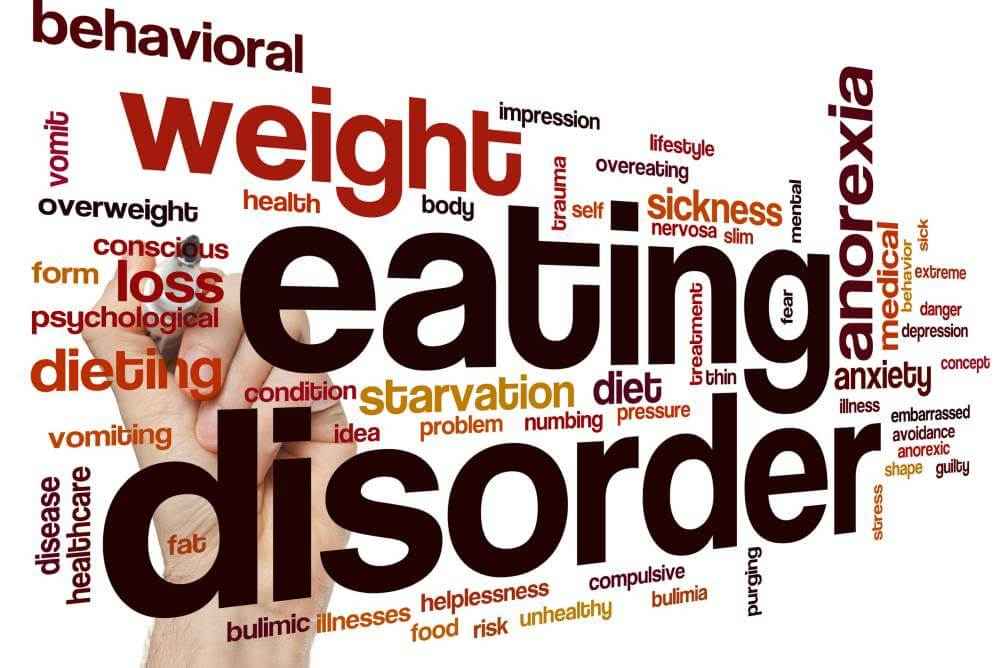Do you have a love-hate relationship with food? Are you constantly obsessing over what you’re going to eat next, and feeling guilty after eating? You may be suffering from food obsession disorder. This is a condition that affects many people and can cause serious health problems if left untreated. In this blog post, we will discuss what food obsession disorder is, and how you can get help for it.
Contents
What Is Food Obsession Disorder

If you have a strong preoccupation with food, and this is impacting your quality of life, you may have food obsession disorder. This condition is characterized by an intense focus on food, including thoughts about what you will eat next, feelings of guilt after eating, and a preoccupation with calorie counting or food composition.
Food obsession disorder, also called orthorexia, is an unhealthy focus on eating healthy foods. People with this disorder may become obsessed with the quality, quantity, and nutrition of the food they eat. Orthorexia is not currently recognized as a mental disorder. However, it can cause serious health problems.
Signs And Symptoms
Various signs and symptoms of food obsession disorder include:
Preoccupation with food: A person with food obsession disorder is always thinking about food. They may be preoccupied with thoughts of what they will eat next, what they are currently eating, or what they have just eaten.
Preoccupation with body weight and shape: A person with food obsession disorder is also fixated on their weight and body shape. They may obsessively weigh themselves, check themselves in the mirror, or compare their bodies to others.
Excessive exercise: A person with food obsession disorder may exercise excessively to burn off calories or lose weight.
Restrictive eating: A person with food obsession disorder may severely restrict their intake of food to lose weight. They may only eat certain types of foods, or they may only eat very small amounts of food.
Binge eating: A person with food obsession disorder may also binge eat. This means that they will eat large amounts of food in a short period, and they may feel out of control while doing so.
Intense cravings: A person with food obsession disorder may have intense cravings for certain foods. They may feel like they cannot resist these cravings, and they may end up eating the foods even if they do not want to.
Guilt and shame: A person with food obsession disorder may feel guilty or ashamed after eating. They may feel like they have done something wrong, or they may be disgusted with themselves.
Difficulty controlling eating: You feel like you have to eat, even when you’re not hungry. This can lead to overeating or binge eating.
These are a few symptoms that are associated with food obsession disorder.
This condition can be treated with help of a professional, who would help you understand your thoughts and feelings about food. They will also help you develop healthy coping mechanisms to deal with your obsessions. If you think you might have a food obsession disorder, please seek professional help.
What Are The Consequences?
While food obsession disorder may not seem like a big deal, it can have some pretty serious consequences. For one, it can lead to an unhealthy relationship with food. This can manifest itself in several ways, such as skipping meals altogether out of fear of overeating.
Additionally, food obsession disorder can also lead to weight gain or obesity. This is because those with the disorder often fixate on certain foods and feel the need to eat them in large quantities, even if they’re not hungry. This can wreak havoc on one’s waistline and lead to some serious health problems down the road.
If you think you may have a food obsession disorder, it’s important to seek help from a professional. With treatment, you can learn to develop a healthier relationship with food and your body. If left untreated, however, the consequences can be quite serious. So don’t hesitate to reach out for help if you’re struggling.
How Can You Manage?

There are a few things you can do to manage food obsession disorder. These are as follows:
Avoid Labels
When we label foods as “good” or “bad,” it can trigger a dangerous obsession. Foods should be seen as nourishment, not morality. By categorizing certain foods as “off-limits,” we only make them more desirable. The best way to avoid this is to keep a neutral attitude towards food.
Eat Mindfully
If you’re struggling with food obsession disorder, it’s important to be mindful of your eating habits. This means paying attention to what you’re eating, how much you’re eating, and why you’re eating. For example, if you find yourself constantly thinking about food or feeling guilty after eating, that’s a sign that you need to pay closer attention to your eating habits.
There are a few things you can do to eat more mindfully:
- eating slowly and savoring your food
- checking in with yourself periodically to see how you’re feeling
- avoiding distractions while you’re eating
- planning so that you’re not making impulsive decisions about food
- eating when you’re hungry, not just because it’s a certain time of day
If you can start to be more mindful of your eating habits, you’ll likely find that your obsession with food starts to lessen. And that’s a good first step in managing food obsession disorder.
Identify your triggers
There are usually certain things that trigger your food obsessions. It might be a commercial you see on TV, a picture in a magazine, or even something someone says to you. Once you identify your triggers, you can start to avoid them. This will help you to control your obsessions and not let them get the best of you.
Get rid of any “trigger” foods
If certain foods trigger your obsession, it’s best to get rid of them. This might mean getting rid of all processed foods, sugary food such as candy and cake, fast food, or anything else that you can’t seem to control yourself around. It’s not always easy, but it’s necessary if you want to overcome your disorder.
Talk to someone who understands
You need to be able to talk about your disorder with someone willing to understand. This could be a family member or even a close friend. If you don’t have anyone to talk to, consider joining a support group for people with food obsession disorders.
Seek professional help
A therapist can help you understand your thoughts and feelings around food and develop healthy coping mechanisms. If you or someone you know has a food obsession disorder, don’t hesitate to seek help. There are many resources available to get you on the road to recovery.
Treatment options available for food obsession disorder include:
Cognitive behavioral therapy (CBT)
This type of therapy helps patients understand and change their thoughts and behaviors. For instance, a therapist may help the patient learn how to deal with negative thoughts about food or their body. CBT may last for several months.
Dialectical behavior therapy (DBT)
DBT teaches patients how to cope with intense emotions and develop healthy coping mechanisms. DBT can be done in individual or group settings and may last for several months.
Nutrition therapy
A registered dietitian can help patients develop a healthy relationship with food. Nutrition therapy may last for several months. A dietician will likely talk to the patient about:
- How the patient views food and their relationship with it
- The patient’s eating habits
- The types of foods the patient typically eats
- Any issues the patient has with food or their body weight
- After meeting with a dietician, the patient will likely be given a meal plan to follow
Interpersonal therapy
This type of therapy focuses on relationships and may be helpful for people with food obsession disorder who have difficulty in social situations. For instance, a therapist may help the patient learn how to communicate better with friends and family.
Group therapy
Group therapy can provide support and help people with this disorder feel less alone. It can also help people learn new coping skills.
Find a support group
Many online and in-person groups can help you deal with yours. These groups can provide or even specific types of food that you can’t stop thinking about. You can manage it by keeping these foods out of your house and only eating them in moderation when you’re out.
Medication
For treating this disorder there are no FDA-approved medications, but some doctors may prescribe medications to help with related issues such as anxiety or depression.
If you think you may have a food obsession disorder, talk to your doctor or mental health professional. They can help you develop a treatment plan that’s right for you. Obsessions with food can be difficult to manage on your own, but there are treatment options available that can help.
Conclusion
It may be concluded that food obsession disorder is a real and serious problem. It can be effectively treated with medication, therapy, and support from loved ones. If you or someone you know is struggling with food obsession disorder, don’t hesitate to seek help.
For further information and suggestions, please contact Therapy Mantra. We have a team of expert therapists and psychiatrists that can help you overcome this problem. Get in touch with us right away to learn more about our services. You may also make an online therapy session or download our free Android or iOS app.


